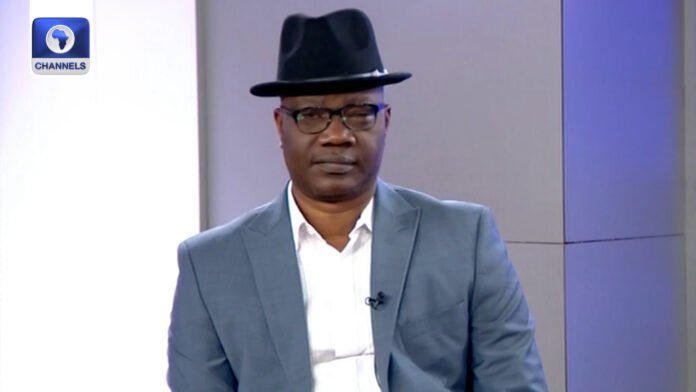In compliance with Section 28 (1) of the Electoral Act 2022 which mandated the Independent National Electoral Commission to issue a Notice of Election at least 360 days before the poll, the Commission on September 26, 2023, issued that notice for both Edo and Ondo States. While the Edo governorship election was held on September 21, 2024, and the inauguration of the winner was held yesterday, November 21, in Benin City, the off-cycle governorship election in Ondo State will be held on Saturday. Who will be the next occupant of the Alagbaka Government House, Akure on 24 February 2025? Only the Ondo electorate will tell with their votes in the next 72 hours.
Ondo State was part of the Western Region of Nigeria before it was carved out of the region by the Gen. Murtala Muhammed military junta on 3 February 1976. It originally included what is now Ekiti State, which was established in 1996. The state is home to great minds like the legal luminary, Chief Gani Fawehinmi, SAN, Olugbo of Ugbo Kingdom and a business mogul, Oba Obateru Akinruntan, Juju maestro, King Sunny Ade, Kennery master, Dr Orlando Owoh (real name Stephen Oladipupo Olaore Owomoyela), business octopus and educationist, Chief Michael Ade-Ojo and the current Aare-ona-kakanfo (Generalissimo) of Yorubaland, Chief Gani Adams, to mention but a few.
The moniker for Ondo State is the Sunshine State. The State has 18 Local Governments, three senatorial districts, 9 House of Representatives members and a 26-member State House of Assembly. It has 203 Wards and 3,933 polling units. Although the state has 2,053,061 registered voters, only 1,757,205 who collected their Permanent Voter Cards would be eligible to vote on Saturday. INEC will deploy a team of four officials to each of the 3,933 polling units across the state, comprising one presiding officer and three assistant presiding officers, bringing the total number of ad-hoc staff to 15,732. The Commission has accredited 111 domestic and international organisations deploying 3,554 as observers, and over 100 media organisations deploying 700 personnel including 129 female journalists.
18 of the 19 registered political parties in Nigeria are fielding candidates for Saturday’s election and to ensure a peaceful poll, the National Peace Committee headed by former Head of State, Gen. Abdulsalami Abubakar was in Akure, Ondo State capital to facilitate the signing of the Peace Accord last Friday, 8 November 2024. The Police claimed it is deploying 36, 637 personnel from various specialised units, including the Special Intervention Squad, Police Mobile Force, Counter-Terrorism Unit, Special Protection Unit, Explosive Ordinance Disposal Unit, K-9 Unit, Federal Investigation and Intelligence Response Team, Federal Intelligence and Security Task Force working in concert with other security agencies. The Commandant General of the Nigeria Security and Civil Defence Corps, Dr. Ahmed Audi, said his agency is deploying 6,000 officers and men for the poll.
Ondo became one of the eight states for off-cycle governorship elections after the electoral heist of the Peoples Democratic Party in the 2007 guber election that returned Dr Olusegun Agagu against the Labour Party candidate, Dr Olusegun Mimiko. The Court of Appeal in Benin, the Edo state capital, on February 23, 2009, upheld the verdict of the election petitions tribunal sitting in Akure, Ondo state, which declared Dr Olusegun Mimiko, the Labour Party candidate, winner of the 14 April 2007, governorship election in Ondo state. Other states that are affected by the court-ordered off-cycle governorship elections include Bayelsa, Imo, Kogi, Ekiti, Osun, Anambra, and Edo. All these except Imo State happened between 2006 and 2010 at the Court of Appeal before the constitutional amendment which now makes gubernatorial election petition to end at the Supreme Court starting from 2011.
In the 25 years of this Fourth Republic starting from 1999 to date, Ondo State has produced five governors namely Adebayo Adefarati (1999 – 2003), Dr. Olusegun Agagu (29 May 2003 – 23 February 2009), Dr. Olusegun Mimiko (24 Feb. 2009 – 24 Feb. 2017), Oluwarotitimi Akeredolu (Aketi) (24 February 2017 – 27 December 2023) and Lucky Aiyedatiwa (the incumbent seeking reelection) 27 December 2023 to date. The state has an unwritten pact that allows for power rotation among the three senatorial districts. Adefarati and Akeredolu are from Ondo North, Mimiko from Ondo Central and Agagu and Ayedatiwa are from Ondo South. It is interesting that though next Saturday’s election has 18 contestants, however, it’s a two-horse race between the Peoples Democratic Party candidate, Agboola Ajayi and the governor, Lucky Aiyedatiwa of the All Progressives Congress.
Unique facts about the duo are that, apart from being a member of the same political party, APC, before, they are both from Ondo South Senatorial District. Ajayi is from Ese Odo Local Government while Ayedatiwa is from Ilaje LGA. Both also served as Deputy Governors to the late Rotimi Akeredolu (SAN) who died in office last December. Agboola served in Akeredolu’s first term before defecting to PDP and later Zenith Labour Party to contest against his principal during the last governorship race. Ayedatiwa was elected Deputy Governor in Akeredolu’s second term. He moved from being Deputy to Acting Governor and to substantive governor after Aketi’s demise.
Ondo State has a long history of electoral violence. Recall that the 1983 governorship election that was rigged by the Federal Electoral Commission better known as FEDECO in favour of Akin Omoboriowo of the National Party of Nigeria against the people’s choice Adekunle Ajasin of Unity Party of Nigeria led to widespread arson which was cited as part of the reason the military took over the reins of power on 31 December 1983. Ahead of the 2024 poll, the campaign has been largely peaceful with no fatality recorded. However, the PDP is asking for the redeployment of the Resident Electoral Commissioner, a request that INEC has rejected based on what it called “unsubstantiated claims”.

Worrisome development ahead of Saturday’s poll is the reported incidences of voter inducement and planned vote buying. According to the November 12, 2024, online edition of this newspaper, it was reported that political parties in the state are stockpiling funds in homes for vote buying and that major parties are finalising merger deals with smaller parties to boost the number of their votes at the election. Furthermore, parties and candidates are wooing gatekeepers with huge sums of money to mobilise as many as possible electorate to their sides.
Multiple sources told The PUNCH that at least N20,000 had been earmarked for each voter on election day, with politicians and parties willing to up the amount to get votes, especially in areas where they deem themselves unpopular. YIAGA Africa earlier reported that political parties had resorted to inducing voters with cash gifts and food items to secure their support ahead of the governorship election. The NGO alleged that leaders of a party distributed fertilisers, rice, cassava, and maize to community leaders tasked with distributing these items within their areas of influence.
It is hoped that INEC will live up to expectations with the promise made to Civil Society Organisations during the last quarterly meeting held on October 31, 2024, at the Abuja headquarters of the Commission.
At that forum, INEC chairman, Prof. Mahmood Yakubu promised that there would be significant improvements in three areas. Namely, voter accreditation with the Bimodal Voter Accreditation System device, timely deployment of poll officials and materials (logistics) and the result management process i.e. upload of results on the INEC Result Viewing Portal.
As I said while responding to the chairman’s opening remarks on behalf of the civil society organisations present at the meeting, INEC needs to break a culture of impunity by making scapegoats of those who compromised electoral integrity, especially permanent or ad-hoc staff of the Commission. Unfortunately, as the INEC chairman said, there is no timeline for prosecution of election offences unlike what obtains with election petition tribunals. Prof. Yakubu also wished for alteration of the law that would enable the Commission to appoint its Resident Electoral Commissioners the same way it appoints its Secretary to the Commission. This, he said, will make them to be under the Commission’s control. I look forward to the clear guidelines the INEC chairman promised for the operationalisation of Section 65 (1) of the Electoral Act which has to do with the review of wrong declarations made by Returning Officers.


